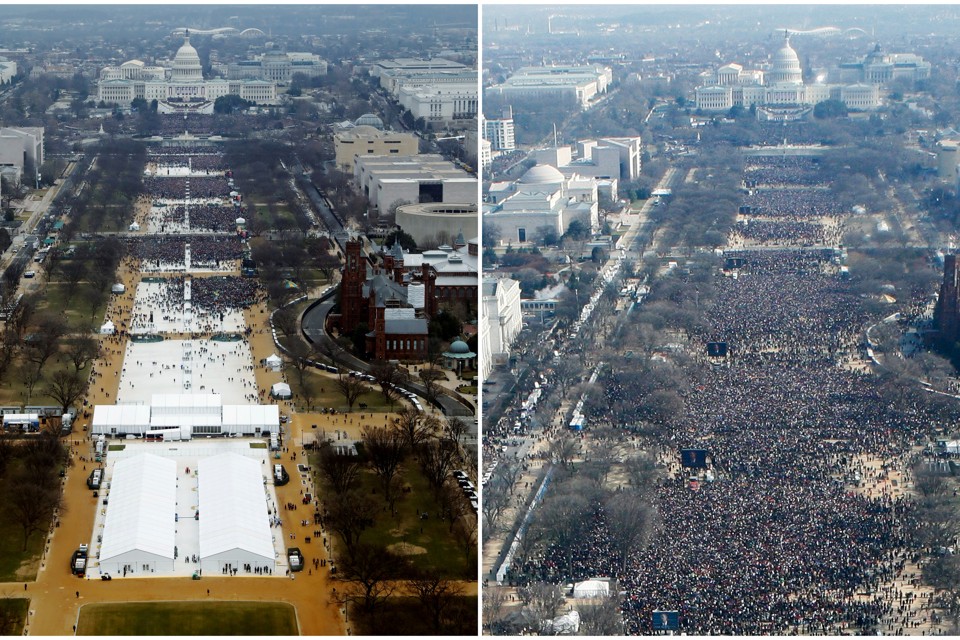"If 2008 was the year of the financial crash, 2016 was the year of the political crash. In that year we witnessed the collapse of the last of the four major economic-political ideologies that dominated the 20th century: nationalism; Keynesian Pragmatism; socialism; and neoliberalism. In the 1970s and 80s the centre right in many countries abandoned Keynesianism and adopted neoliberalism. In the 1980s and 90s the centre left followed, largely abandoning democratic socialism and adopting a softer version of neoliberalism.
In 2008 that consensus was rocked, last year it crumbled. Some will cling on to the idea that the consensus can be revived. They will say we just need to defend it more vigorously, the facts will eventually prevail, the populist wave is exaggerated, it’s really just about immigration, Brexit will be a compromise, Clinton won more votes than Trump, and so on. But this is wishful thinking. Large swathes of the electorate have lost faith in the neoliberal consensus, the political parties that backed it, and the institutions that promoted it. This has created an ideological vacuum being filled by bad old ideas, most notably a revival of nationalism in the US and a number of European countries, as well as a revival of the hard socialist left in some countries."
Yes indeed, politics started polarising alarmingly from the shock of the Global Financial Crisis (GFC) of 2008. France, the US and Australia all took a jump to the left with the election of mildly progressive governments. This produced a reaction in the conservative forces in these countries which has witnessed the revival of some of the most destructive right-wing ideologies of the 20th century: fascism, national socialism, extreme nationalism, superficial populism, demagoguery. Hopefully it will all settle down eventually to a new consensus ideology based on rational fact and evidence-based policy. Has anyone seen any pigs in the sky lately?
Democratic Socialism is the way to go but conservatives are very good at demonising it, asserting its equivalence to Stalinism and the worst forms of 20th century communism. How totally absurd??? All you have to do is observe and analyse the highly successful European countries following this ideology. The Nordic countries lead the way. Perhaps it is time for a new Viking influence across the globe. The postwar period in the US was a reasonable approximation also but they walked away from it.
No one appears to have analysed the inevitable consequences of following extreme neoliberalism coupled with globalisation of capital. Financial capital flows across borders, while human capital is constrained. This allows pockets of low labour cost to develop, which are then used by multinationals to build their factories, maximising their profits by minimising labour cost. It's all so artificial, in fact it amounts to extreme market failure, for the jobs which go off-shore are not replaced in the host economy. Widespread poverty results, the gap between rich and poor widens, wealth concentrates in fewer and fewer hands.
If there were free movement of human capital a natural hierarchy of income, or equilibrium, could be established through market mechanisms. The trend is really egalitarian. Those making obscene amounts of money would have their income reduced to an adequate level while the poor would have their's lifted to an adequate level. Democratic Socialism attempts to do this through taxation and income redistribution, but it is actually the endpoint of an unfettered market where all factors of production are allowed to move freely through the market. Such a reality would require a single world market. Until this happens Democratic Socialism is the best we can hope for.
Which brings us back to Keynes. In his later years the prescient one was asked where he thought it was all going too end. Where we were headed in other words. He replied that there would be an extended period of cheap money (low interest rates) which would cause there to be such an abundance of all material things that everything would be so cheap that all people could have everything they want. I call this the Keynsian Capitalist Utopia (KCU) and I believe we are actually already living in this utopia but artificial market failures, such as the above mentioned immobility of human capital, are masking its full effect. Since 2008 we have seen hyper-low-interest rates in many countries, even going negative at times. In its ninth year of very cheap money, the GFC reaction has seen governments printing money nonstop, bailing out big banks and trying to get their economies growing again, but inflation is minimal and employment is low. If the KCU were allowed to become real, all the financial elites would be wiped out, so I believe they must be manipulating the market, as they have always done historically to maintain the status quo and their position at the apex 0f the social hierarchy.
The thing about ideologies is that extremes are destructive but most have good, positive, progressive aspects as well as the destructive. If we had some sort of rationalism as our ideology we could pick out the good bits and combine them into something beneficial. As one uses the right tool for the right job, we must find the right ideology to guide our fortunes in the 21st century.


